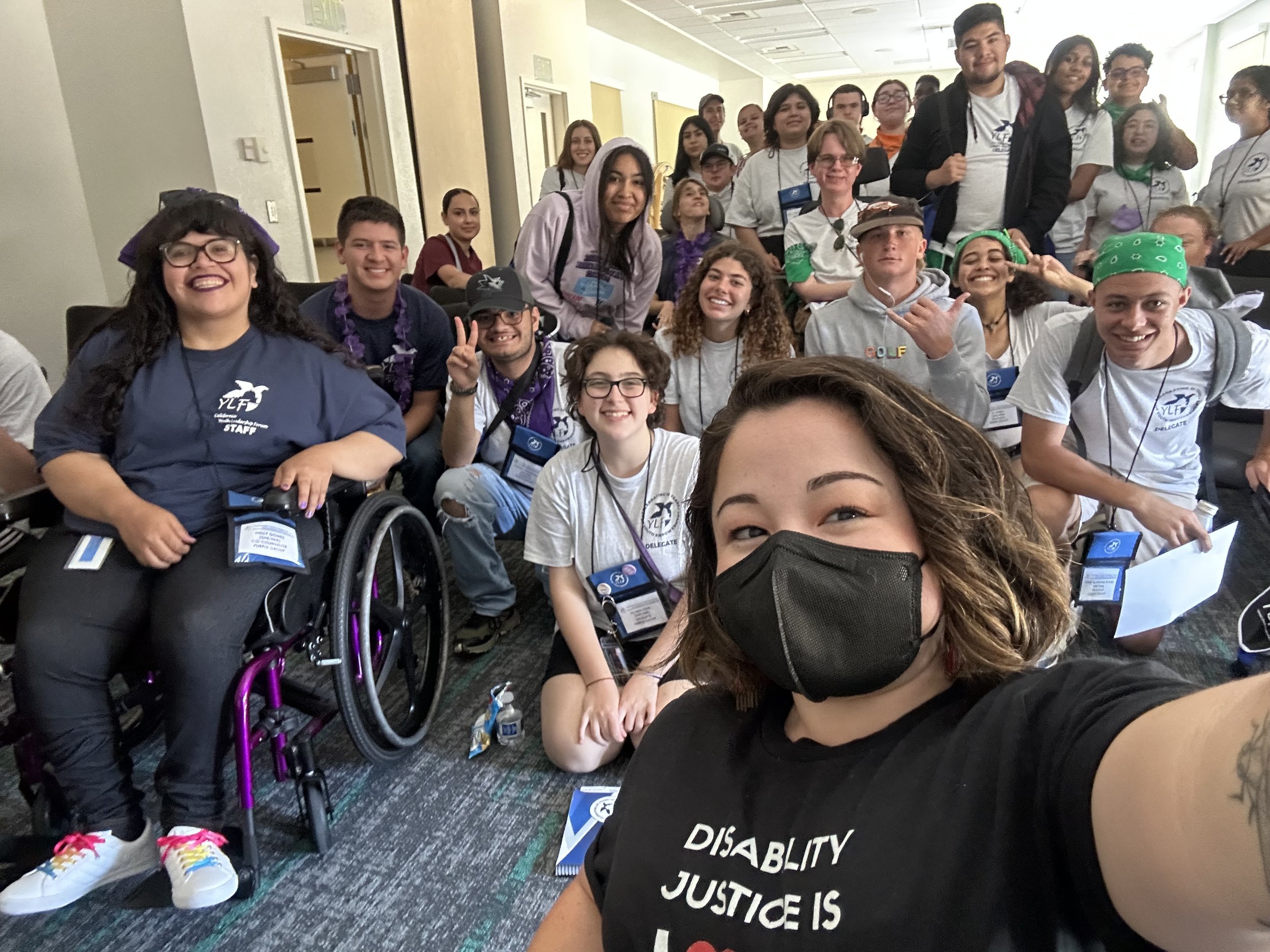speaking from experience.
Rosemary has extensive experience facilitating trainings on disability history, culture and etiquette. In 2022-2023 Rosemary trained over 1,500 members of Google’s Brand Marketing team on disability language, stereotypes, and culture. In addition to her extensive knowledge of intersectional disability history, she takes great pride in centering the stories of Black and brown disabled leaders, and disabled leaders with multiple marginalized identities.

Rosemary has experience facilitating trainings for non-profit organizations, corporate companies and classrooms both virtually and in-person.
Key components of a training can include:
Access check-in
Disability history and policy from 1800-1950’s
Disability civil rights
Models of disability: social, medical, religious, charity and diversity model
Define intersectionality
Disability language: people first v. identity first
Types of ableism: internalized, institutional, interpersonal
Disability etiquette examples
Resources on how to ask for and provide accommodations
Common disability stereotypes and narratives to avoid
Disability disclosure & accommodations
methodology
Rooted in the principles of disability justice, Rosemary’s approach to training starts with the framework of collective access; the idea that every person has access needs, whether they are disabled or not. From there she builds a larger understanding of how disability stereotypes have shifted overtime to create the environment we currently live in.
Throughout the training experience, Rosemary leans on her own experience as a disabled person and pulls from examples of others in the disability community. The goal of each training is to entice audience members to begin their learning journey, understanding that learning doesn’t begin or end with the one or two sessions; acknowledging that disability language is always changing and evolving.

